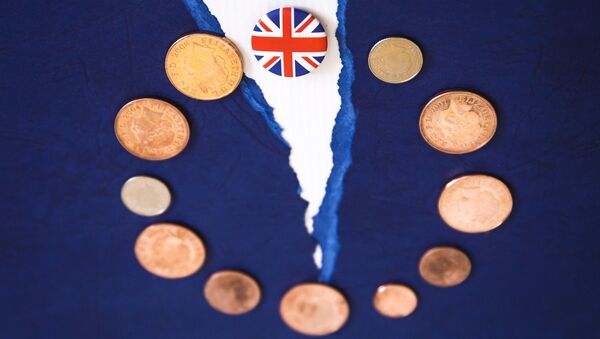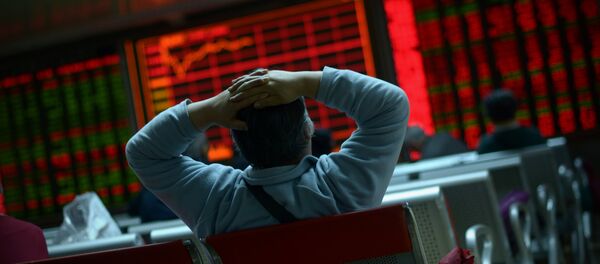Sputnik: The Resolution Foundation think tank said people who were in their 20s at the height of the recession a decade ago were worst hit by the pay squeeze. How significant are these recent developments and is it true do you think?
I'm sure it is valid but the bailouts were not about helping the people. I'm a free market capitalist and the bailouts were not capitalism — it was about bailing out rich people. Over the last 10 years other data, such as data from the Office for National Statistics, shows that the top 10 percent have done exceptionally well out of the last 10 years and the middle classes, the poor and younger folk have broadly stayed where they are, or their position financially has got worse. There is no question that inequality has risen because of the bailouts and because of quantitative easing and very low interest rates.
Sputnik: Many economists are predicting that we are on the verge of another global recession… What economic measures should we be seeing to ensure we don't make the same mistakes we did a decade ago?
If you let failed businesses go bust, whether they're bankers or steelworkers, then what happens is that the cost of doing business and the cost of living will fall thus whatever assets and income that the rest of us have; we'll find that our standards of living and our opportunities to do business will be easier because as I say the cost of business will be lower. How can it possibly help to bail out the South Wales Steelworkers? How does that help the guy in Yorkshire on twenty-eight thousand a year, three kids and mortgage, who ultimately is paying for it? It doesn't. Capitalism equalizes — it brings fairness. Socialism and cronyism brings inequality and this is what socialists never understand.
READ MORE: Major Economies Slumping but 'Nowhere Near' Global Recession — Financial Analyst
Jonathan Davis: The thought is absolutely ludicrous! I will remind you that right up until the 23rd June 2016, the date of the EU referendum, we were being told by luminaries in the establishment, top politicians, the Prime Minister, the Chancellor, the Governor of the Bank of England… socialists all over the place, they all in cahoots, telling us that if we vote to leave the EU the UK economy will go to hell in a handcart — it was, of course, a pack of lies.
The same people have been doing it since then, nearly three years now; they've been pushing out that if we leave the EU, the UK economy will go to hell in a handcart. It is absolutely utter nonsense. Nothing, practically nothing, is going to change at 11:01 pm on March 29th 2019 if we leave the EU. Unfortunately, although we have a leave population we have an antidemocratic remain parliament, thus it is unlikely we will be leaving the EU and if we do it will be Brexit in name only.
The views expressed in this article are those of the speaker and do not necessarily reflect those of Sputnik.




